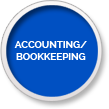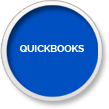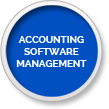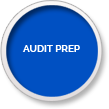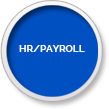
Accounting 101 for Small Businesses
There’s no question about it: succeeding as a small business requires a sound financial and accounting plan. Though for many people starting a new business, establishing and maintaining an organized accounting system may seem daunting, especially if you have no prior experience. We’ve found that there are several key elements to updating and maintaining your financial records, and have highlighted them to help you get started.
- Balance Sheet – By providing a summary of your company’s assets, liabilities and net worth, a balance sheet will offer a clear perspective on your business’ financial health. Your assets are the resources that you control, such as cash, equipment, furniture, buildings and money owed to you (i.e. your customers, etc.). Liabilities include debt or other obligations that you owe to others, including taxes, loans, payroll, and accounts payable (i.e. vendors, etc.). Your company’s net worth (or equity) is what remains when you subtract your liabilities from your assets.
- Profit-and-Loss-Statement – Also known as an income statement, this offers a historical record of how much you’ve earned in revenues, how much you’ve spent and what your net income is over a specific time frame. Often monitored on a monthly timeline, the P&L will let you know if you’re making money or losing money, and exactly how much you are making or losing. The P&L is also a great way to monitor what services or products are selling best, the margins on your products and services and where you may be spending too much on expenses.
- Cash Flow Statement – Similar to the ledger in your personal checkbook, a cash flow statement shows how much money came in, how much is going out and the remaining balance. This statement shows the flow of cash in and out of your business. Cash comes in, usually in the form of sales, accounts receivable, new loans and investments, and then goes out usually as expenses, equipment purchased, inventory purchased, and loans paid. This statement will show you the breakdown of the flow of cash within your operating, financing and investing activities.
There are a variety of options available for a small business to track their accounting, including financial software such as QuickBooks, Quicken, or Peachtree, just to name a few. While for simple record keeping you could create Excel spreadsheets, the other financial software systems are very user-friendly and will help you keep clear records of all expenses and revenues.
What techniques have you found to be helpful for monitoring your small business’ financial health? Share with us in the comment section below.
